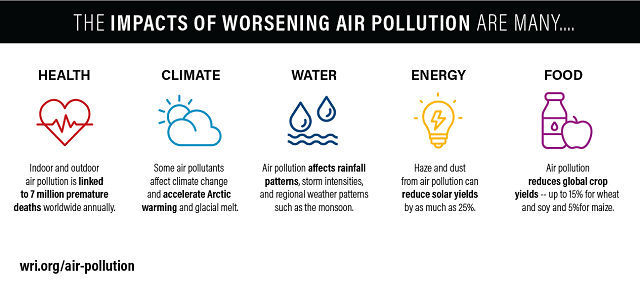
Breathing Easy: Clean Air Quality for Healthier Living
Clean air quality is not just a luxury; it’s a fundamental requirement for a healthy and thriving life. Explore the profound benefits of prioritizing and maintaining clean air quality in your living spaces. Learn about the positive impact on your health, well-being, and the environment.
Understanding the Importance of Clean Air Quality
Clean air quality is vital for overall well-being. It refers to the presence of clean, pollutant-free air in our surroundings. Poor air quality, on the other hand, can lead to a range of health issues, including respiratory problems, allergies, and cardiovascular diseases. Understanding the importance of clean air is the first step towards creating a healthier living environment.
Health Benefits of Clean Air Quality
The health benefits of clean air quality are extensive. Breathing clean air reduces the risk of respiratory infections, asthma, and other respiratory conditions. It also promotes cardiovascular health and contributes to overall immune system support. Children, the elderly, and individuals with pre-existing health conditions particularly benefit from a clean air environment.
Reducing Respiratory Issues
Clean air quality plays a crucial role in reducing respiratory issues. Polluted air, filled with particulate matter and harmful gases, can irritate the respiratory system and lead to conditions like bronchitis and chronic obstructive pulmonary disease (COPD). Prioritizing clean air helps minimize the risk of such respiratory problems.
Allergy Prevention and Relief
Clean air quality is a boon for allergy sufferers. Airborne allergens like pollen, mold spores, and dust mites can trigger allergic reactions. Maintaining clean air reduces the concentration of these allergens, providing relief for allergy sufferers and preventing the onset of allergy-related symptoms.
Enhanced Cognitive Function
Clean air doesn’t just benefit the body; it also enhances cognitive function. Studies show that exposure to clean air is linked to improved concentration, better decision-making, and enhanced overall cognitive performance. Creating an environment with clean air is essential for optimal mental well-being.
Environmental Impact of Clean Air Practices
While individual actions contribute to clean air quality, they also have a broader environmental impact. Choosing eco-friendly practices, reducing carbon emissions, and supporting clean energy initiatives collectively contribute to reducing air pollution on a larger scale. Clean air practices extend beyond personal benefits to fostering a healthier planet.
Reducing Indoor Air Pollutants
Indoor air quality is equally important, as we spend a significant amount of time indoors. Common indoor pollutants include volatile organic compounds (VOCs) from household products, tobacco smoke, and mold. Proper ventilation, air purifiers, and the use of low-emission products contribute to maintaining clean indoor air.
Creating Healthy Home Environments
Prioritizing clean air quality involves creating healthy home environments. Adequate ventilation, regular cleaning to minimize dust and allergens, and avoiding the use of harmful chemicals contribute to a healthier living space. These practices are especially crucial for individuals with respiratory conditions or allergies.
Outdoor Clean Air Initiatives
Supporting outdoor clean air initiatives is essential for community well-being. Advocating for emission reduction measures, tree planting, and supporting policies that aim to reduce air pollution contribute to creating cleaner air for everyone. Active community involvement is key to achieving and maintaining clean air quality.
Visit Clean Air Quality Benefit for Insights
For more insights on the benefits of clean air quality and practical tips for maintaining a healthy living environment, visit Clean Air Quality Benefit. Explore resources, gain knowledge, and discover how you can actively contribute to promoting clean air for a healthier and happier life.
In conclusion, prioritizing clean air quality is a holistic approach to well-being. It not only safeguards our health but also contributes to a healthier planet. By understanding the importance of clean air and implementing practices to maintain it, individuals can make a positive impact on their health, the well-being of their communities, and the environment as a whole.
